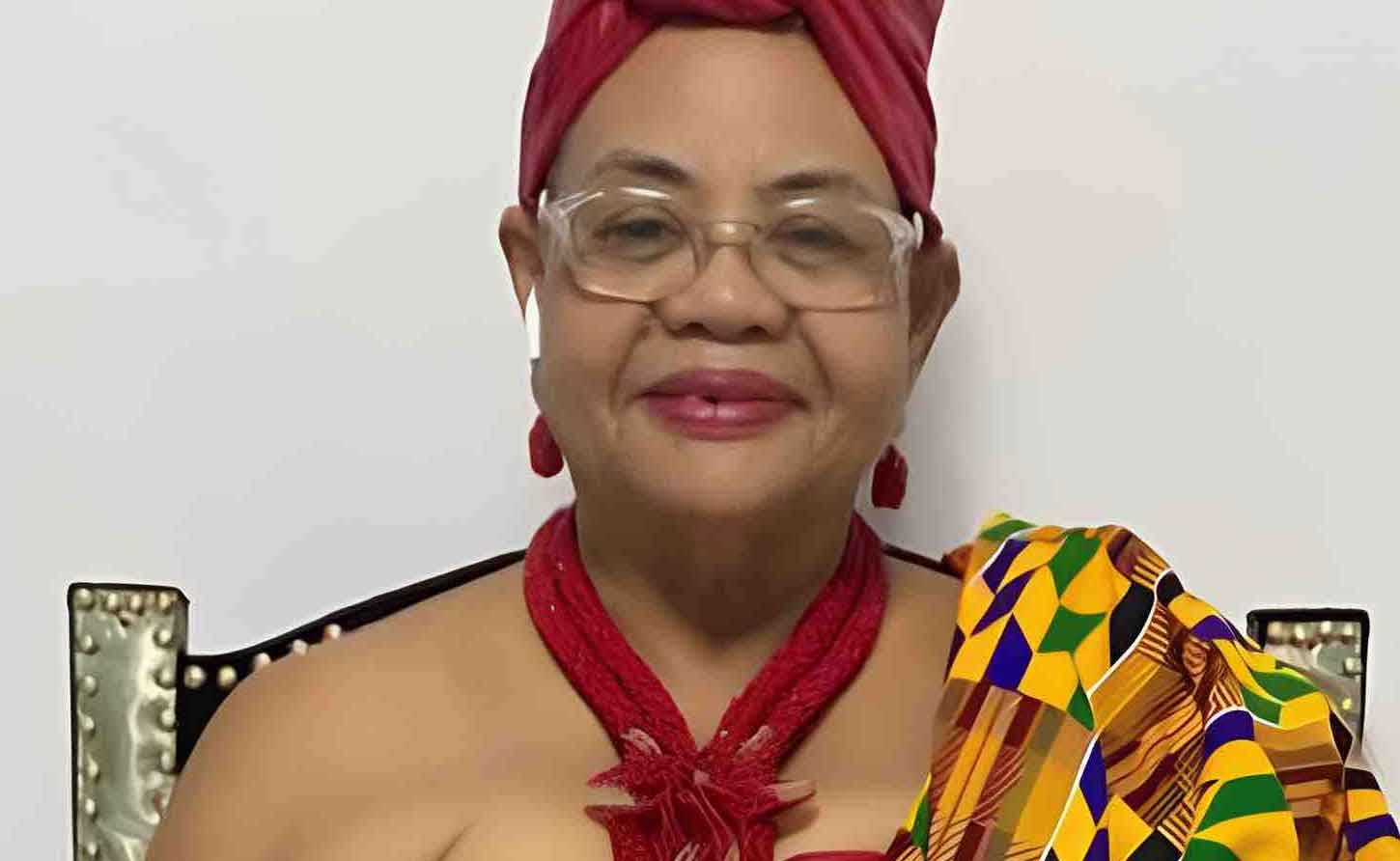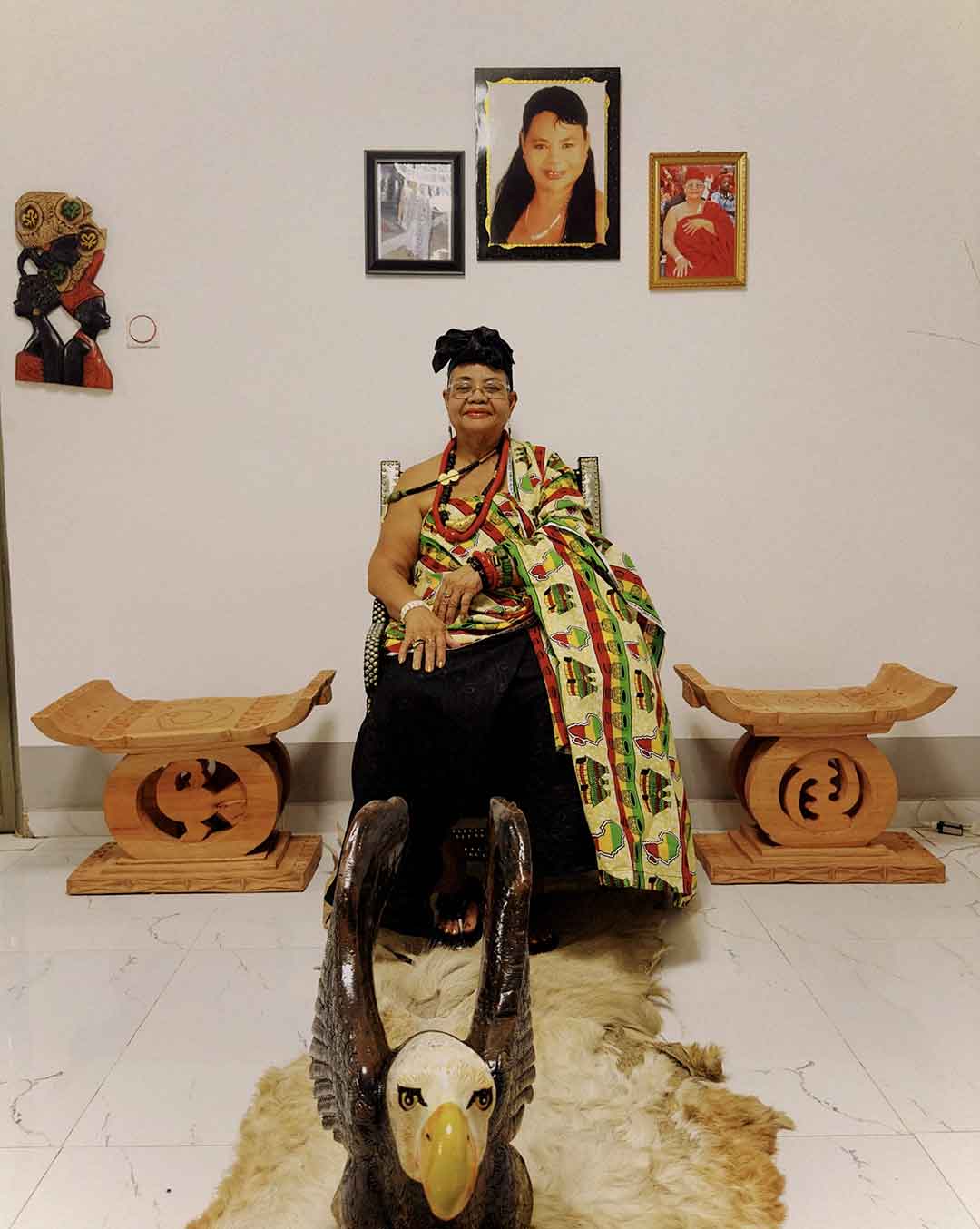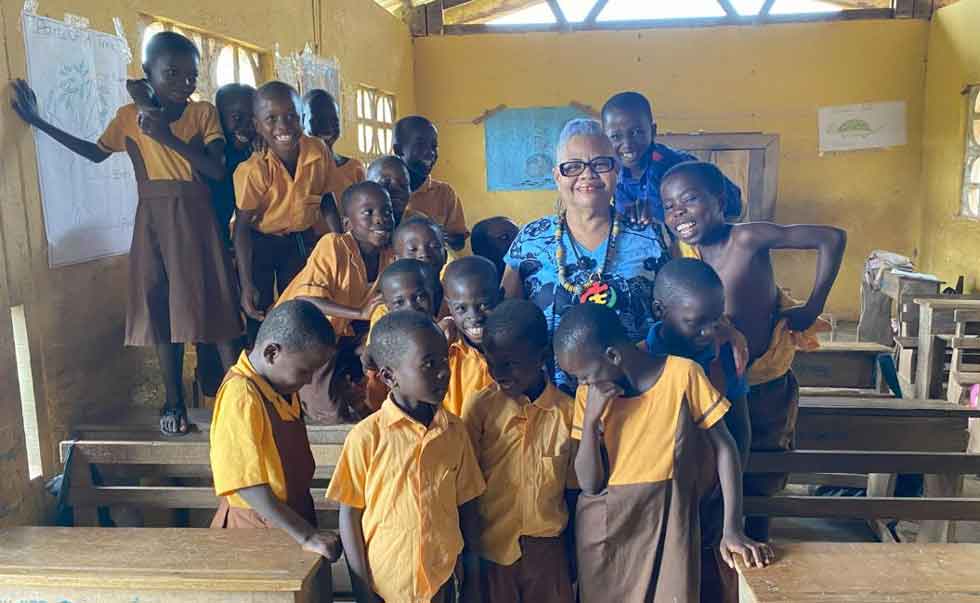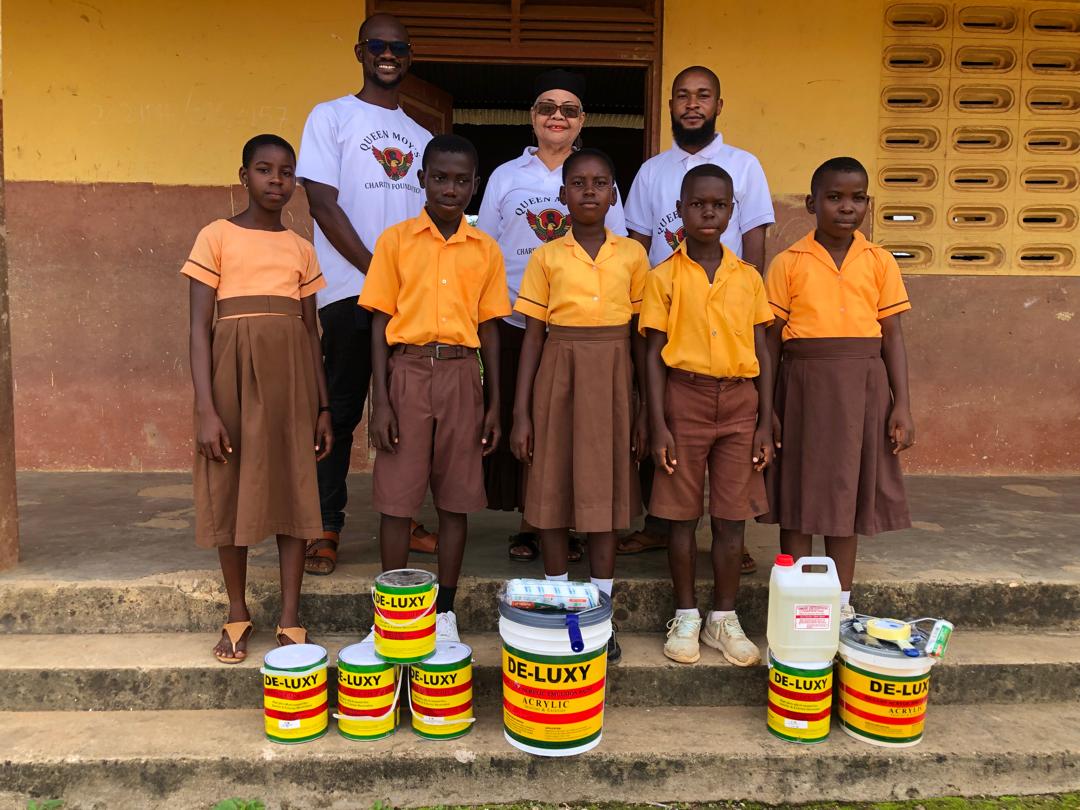AFRICA | Jamaica's African Queen Naa Moy helping Ghana's Children

ACCRA, Ghana, July 28, 2024 - There is a conventional wisdom which says that anywhere in the world you go, from Europe to the Americas, the far east, as well as Africa, you’ll find a Jamaican of substance and influence trying to make a difference.
In the heart of Cape Coast, Ghana, the story is no different. At its center stands Vivalee (Moy) Hoyen, a Jamaican woman whose journey has led her from humble beginnings in Jamaica to an unexpected role and a satisfying mission.
Her life’s journey took her to Atlanta,Georgia in the United States and then to Accra Ghana where Vivalee's life took an extraordinary turn when she was enstooled as Naa Boafoyena (Diaspora Queen) Mpese Tsuru the 1st, of the Mpese Royal Family in Ghana.
Now an African queen, she was born Vivalee Lilieth Hoyen and affectionately known as Moy, now living in the Asebu Pan-African Village along the Cape Coast of Ghana.

Her upbringing in Jamaica, under the guidance of her mother, Norma May Kelly, and her stepfather, Lloyd Hunt, her uncle Oscar Hoyen and his wife Muriel Hoyen, the head mistress of the school which instilled in her the values of hard work, resilience, and a deep sense of community.
From her school days in Kingston and Irish Town to her early entrepreneurial ventures, Moy's Jamaican roots laid the foundation for her achievement as Gaa Queen, Naa Boafoyena Mpese Tsuru the 1st of the Mpese Royal Family.
This honored position GAA queen makes her responsible for members of the diaspora, overseeing land sales and guiding those of African descent returning to their ancestral homeland.
But it was in the eyes of Ghana's most vulnerable children in her village of Asebu that Vivalee, now referred to as Naa found her true calling.
In the dilapidated classrooms of New EBU Methodist Basic School, Vivalee witnessed a reality that shook her to her core.
Here, education wasn't just a challenge – it was a desperate fight against overwhelming odds.

As the sun sets each day, while most children return to their homes, many of these young souls remain. The school's crumbling walls become their bedroom, its hard floors their only mattress.
In the dim light of dawn, they rise, using a single outdoor tap not just for drinking, but for their morning wash – their only chance at cleanliness and dignity.
These children, with dreams as vast as the African sky, face each day with empty stomachs and worn-out uniforms. Yet, in their eyes, Vivalee saw an unquenchable thirst for knowledge, a flicker of hope that refused to be extinguished by their circumstances.
She describes it thus: “In the vibrant community of Asebu, where the spirit of our people runs as deep as ancient roots, there's a quiet crisis unfolding in classrooms across several primary schools and kindergartens. Picture this: a six-year-old arrives at school, stomach growling louder than the morning bell, feet bare against the dusty ground, wearing clothes that have seen better days. How can we expect this bright spark to focus on learning letters when their body is crying out for basic needs?
This isn't just about one child—it's about hundreds of our future leaders, innovators, and changemakers who are starting each day at a disadvantage that no child should face.”
That's why I've launched our comprehensive support program for Asebu's children. We're not just talking about charity; we're talking about transformation. Our initiative provides school uniforms and shoes—because dignity matters and every child deserves to walk into their classroom with their head held high.
But the heart of our program is something even more fundamental: ensuring that every child receives one hot, nutritious meal each day, prepared with locally-grown ingredients that nourish both body and community.
The Numbers Don't Lie—They Inspire
Recent research has given us powerful proof of what we've always known in our hearts: when we feed children, we feed their futures.
The evidence is remarkable—75% of teachers reported increased enrollment when school feeding programs were introduced. Think about that: three out of four educators witnessed families making the decision to send their children to school simply because they knew their little ones would be fed.
Even more encouraging, 60% of respondents confirmed what we suspected: when children's bellies are full, their minds are free to learn, grow, and excel. Academic performance doesn't just improve—it soars.
Naa took action. She began pouring her personal funds into the school, tackling its most urgent needs. Clean water, nutritious meals, school supplies, and fresh uniforms – each small improvement felt like a drop in an ocean of need, but to the children, it meant the world.

But the needs run deeper than one person's resources can reach. Having given all she can, Vivalee now turns to the global community with a plea that echoes the silent cries of these children. She has reached out to those who believe that every child, regardless of their circumstances, deserves a chance at a future.
Every contribution, no matter how small, has the power to change a life, to light up a young mind, to feed a dream.
Vivalee Hoyen's story is one of unexpected paths leading to a profound purpose. It's a testament to the power of compassion in the face of overwhelming need.
Now, she invites you to join her in this crucial mission. Together, we can rewrite the story of these forgotten children, transforming tears of despair into tears of joy and hope.
Naa Boafoyena's vision extends beyond her immediate community. She believes in educating every child about their heritage, in uniting as one nation, and in making Ghana a beacon of hope and prosperity.
Her story and her leadership are a rallying call to the diaspora in the Caribbean, the United States, and around the world: to unite, to contribute, and to build a shared future of prosperity and recognition.
Will you answer the call? Will you help Vivalee paint a brighter future for Ghana's most vulnerable children? Check this link to her "Go-Fund-Me" Page in order to support the effort.
-30-
